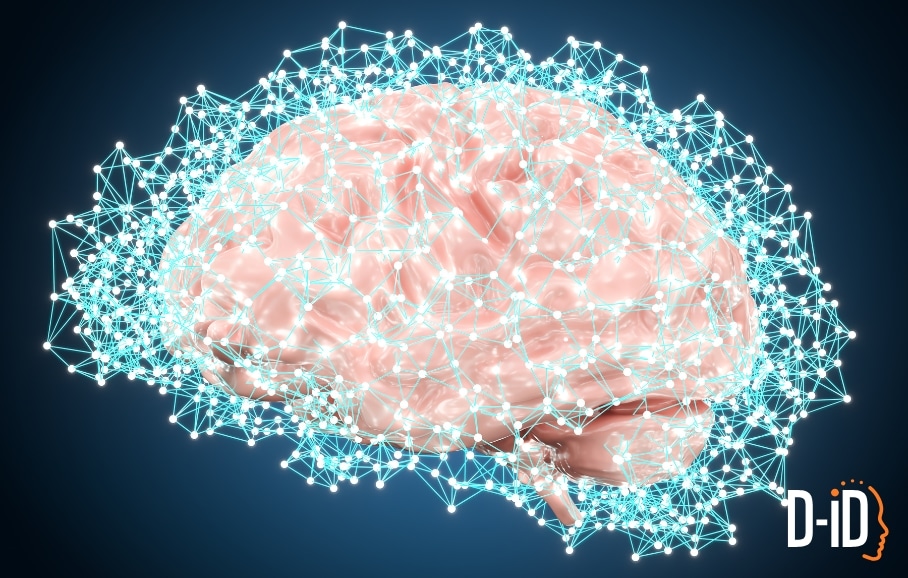Cognitive AI Agent

What is a Cognitive AI Agent?
A cognitive AI agent is an advanced form of artificial intelligence that mimics human cognitive functions such as perception, learning, reasoning, and decision-making. Unlike rule-based systems that follow static instructions, cognitive agents actively interpret their environment, adjust to changes, and learn from experience. This adaptability allows them to operate effectively in dynamic, unpredictable scenarios similar to how humans respond to new information in real time.
Cognitive AI agents are distinct from traditional AI systems because they do more than just process inputs and deliver predefined outputs. They operate with a degree of contextual understanding, self-improvement, and goal-oriented behavior. These agents combine multiple AI disciplines, including machine learning, natural language processing (NLP), and knowledge representation, to simulate intelligent decision-making.
In the enterprise world, cognitive agents can transform how businesses automate processes, engage with users, and generate insights. Their ability to adapt and improve continuously makes them valuable assets in environments that require responsiveness and personalization. This is especially important in industries like healthcare, education, finance, and retail, where dynamic user needs demand real-time intelligence and action.
How Do Cognitive AI Agents Work?
The operational foundation of cognitive AI agents lies in their ability to perceive, learn, and act, constantly cycling through these stages to refine their behavior. These are commonly referred to as active cognitive agents in AI because they are not passive responders but active participants in their environment.
Cognitive agents process data from a variety of sources, including user inputs, sensor data, enterprise systems, or conversational history. This data is parsed, contextualized, and matched against their knowledge base and goals. The result is an informed decision or action.
Here’s how the core components work:
- Perception: The agent gathers information from its environment through sensors, user inputs, or API integrations.
- Interpretation: It interprets this data using techniques like NLP, intent recognition, or computer vision.
- Reasoning: The agent determines appropriate actions using predefined goals and probabilistic models or decision trees.
- Learning: Machine learning models allow the agent to improve over time, adjusting behaviors based on outcomes and user feedback.
- Acting: The cognitive agent executes actions, whether that’s generating a response, triggering workflows, or initiating conversations with users.
For example, a cognitive agent integrated with D-ID’s real-time video avatar can carry out conversations with users while learning from each interaction. The visual component reinforces human-like communication while the cognitive engine drives understanding and responsiveness. This pairing creates a sense of presence and immediacy that text-based bots alone cannot deliver.
Benefits of Cognitive AI Agents for Developers
Developers and IT leaders stand to gain significant advantages from building with cognitive AI agents. These agents introduce a new layer of intelligence and flexibility to software systems, making them highly attractive for enterprise-scale deployments. Here are the key benefits:
- Adaptability: Cognitive agents evolve through learning. This means developers can deploy agents that improve over time without constant reprogramming. In applications like customer support or e-learning, where users frequently introduce new scenarios, this adaptability ensures relevance and responsiveness. Developers can train agents on real-world feedback and allow them to refine responses automatically, enhancing system resilience.
- Contextual Awareness: Unlike rigid systems, cognitive agents assess tone, intent, history, and user behavior to adjust their outputs. Developers can build systems that feel more personalized and emotionally intelligent. For example, an agent assisting in employee onboarding might recognize confusion and slow down its pacing or repeat instructions in simpler terms.
- Natural Interaction: When paired with expressive video avatars or voice interfaces, these agents create highly engaging user experiences. Developers can craft front-end experiences that mimic human interaction without the overhead of managing real-time staffing. This is particularly valuable in applications like training, onboarding, or product walkthroughs.
- Scalability: Cognitive agents can be cloned, retrained, or versioned with minimal effort. Developers can roll out updates across departments or markets while retaining consistency. The ability to handle multiple languages and regional contexts also makes these agents ideal for global deployments, especially when integrated with video avatars for localized engagement.
- Rapid Prototyping and Iteration: Developers can experiment with different datasets, prompts, or knowledge bases and receive immediate feedback. Cognitive agents are conducive to A/B testing, allowing development teams to refine outputs through short feedback loops. This leads to faster iteration cycles and a better understanding of user preferences.
- Modular Integration: Cognitive agents are highly modular by design. In D-ID’s ecosystem, developers can integrate these agents with lifelike avatars using Agent APIs. These video-first interfaces not only humanize the interaction but also make agents more approachable and trustworthy. They can be embedded across digital touchpoints such as landing pages, support portals, internal tools, or training platforms.
Because of their modular nature, cognitive agents also integrate well with external systems such as CRMs, knowledge bases, learning management systems, and business intelligence platforms. This interoperability enables developers to build automated workflows that span departments, reduce manual overhead, and support enterprise-grade orchestration. As a result, cognitive AI agents don’t just support isolated interactions, they power full systems that learn, adapt, and scale across business functions.
Use Cases of Cognitive AI Agents Across Verticals
Customer Support: One of the most common cognitive agent examples is in automated customer service. A cognitive agent can handle support tickets, route requests intelligently, and escalate issues when needed. These agents can speak to customers in real time, improving satisfaction and reducing resolution times.
Training and L&D: Enterprises use cognitive agents to create intelligent training assistants. These agents can answer employee questions, walk users through tutorials, or even simulate interactive scenarios for onboarding. Training modules can feature expressive video avatars that deliver content in a personalized, engaging way.
Data Analysis and Reporting: In business intelligence contexts, cognitive agents assist in parsing large datasets, detecting patterns, and generating summaries. They can respond to queries like “What were the top-performing regions this quarter?” and present the answer through a speaking avatar embedded in a dashboard.
Marketing and Sales Enablement: AI agents can qualify leads, offer product recommendations, or walk prospects through sales materials. When combined with lifelike avatars, they make marketing more personal and interactive.
Healthcare Guidance: In digital health applications, cognitive agents can guide patients through pre-appointment screenings, medication instructions, or wellness programs. Their ability to process sensitive information securely and respond empathetically makes them well-suited to patient-facing use cases.
Cognitive Agents are the next generation of chatbots and they’re built to learn and expand based on your organizational needs. As customer expectations shift and grow more complex, the strength of cognitive AI agents lies in their ability to adapt in real time. Instead of relying on fixed scripts, they interpret context, learn from each interaction, and adjust over time. This makes them well suited to support users in environments where needs aren’t always predictable, helping organizations stay flexible and focused on delivering meaningful, relevant experiences.
Getting Started
Creating an AI-generated persona as a virtual representative takes only a few minutes and no special skills. Find out how this process can work wonders for you by contacting us today.
FAQs
-
A cognitive AI agent is designed to simulate human-like reasoning and learning, whereas a regular AI agent typically follows predefined rules or scripts. Cognitive agents adapt in real time, apply contextual understanding, and improve with experience.
-
They provide dynamic automation, enhance user interaction, and reduce manual workflows. For developers, they offer faster iteration, scalability, and richer user engagement through natural interfaces like conversational avatars.
-
Yes. D-ID’s platform enables cognitive agents to power real-time talking avatars. This combination enhances trust, clarity of communication, and personalization in customer interactions.
Was this post useful?
Thank you for your feedback!


